The Relationship between Creativity and Preferred Style of Approaching Conflict Following Procedural Unfairness
Ana Maria Hojbotă, Paula Andreea Pascu
The authors investigated the relationships between creative thinking abilities, assessed with The Battery of Tests for Creative Thinking (Ana Stoica-Constantin, Mariana Caluschi, 2005), measuring fluency, flexibility, originality, elaboration, sensitivity to problems, and the personal style of managing conflict, evaluated with Thomas-Kilmann Conflict Instrument Mode (1977), following unfair treatment; emotional stability was also measured using the neuroticism scale from the Eysenck Personality Questionnaire (1975). The sample of 240 teenagers was divided into a control group and an experimental group; in the experimental condition, procedural unfairness was manipulated through a situation in which participants were subjected to an unannounced evaluation and exposed to negative comparison to a reference out-group. The results revealed that in controlled conditions, highly creative subjects preferred less competitive responses, compared with low-creative subjects; on the other hand, in the experimental condition, after being exposed to the frustrating, unjust situation, the subjects showing higher levels of creative thinking were inclined to equally competitive strategies as their less creative counterparts.
creativity, style of approaching conflict, perceived unfairness.
Ana Maria Hojbotă – Alexandru Ioan Cuza University of Iasi, Romania; e-mail: a_hojbota@yahoo.com


